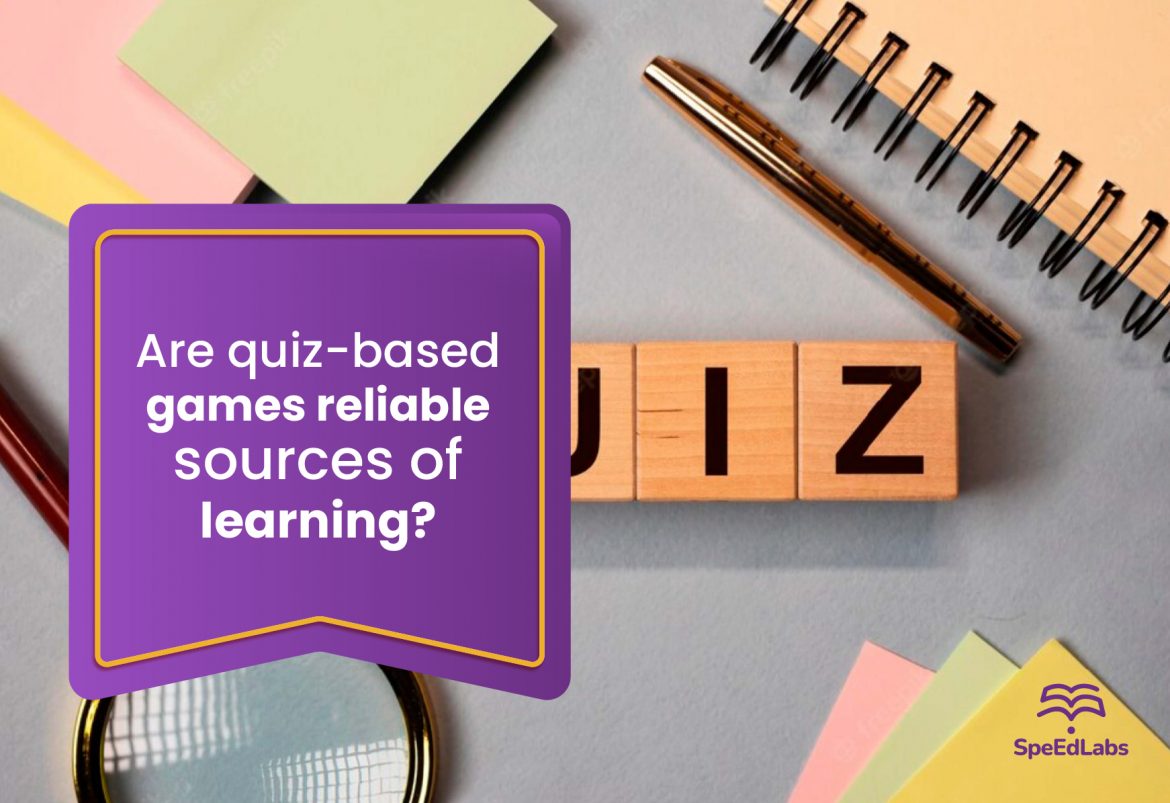Quiz is one of the tools that is becoming more popular, especially in online education. They aid concentration, identify knowledge gaps, instil confidence, and aid information retention in children. They’re also entertaining!
Quizzes can also make language learning fun!
People of all ages have developed a new propensity for learning new English vocabulary words as a result of the popularity of vocabulary quiz games, crossword puzzles, and the recent popularity of the word game. Learners can benefit from quizzes and activities to help them enhance their language skills. Even a complete beginner in the English language would enjoy learning English through games and quizzes.
How do quizzes and games make language learning fun?
Language learning can be stressful or ‘high stakes,’ and games might help. When studying languages, people can become worried, especially if English is studied as an academic topic and their future success is contingent on knowing the language.
- When used in conjunction with a strong vocabulary and grammar foundation, video games can help kids enhance their reading, comprehension, and even speaking skills. In struggling pupils, the effects are considerably more pronounced. More than 78 per cent of teachers said that learning games, including video games, were beneficial in helping struggling students compensate for learning gaps in their regular courses, according to a recent nationwide poll.
- So, how do English learning games, or even video games, aid students’ linguistic and cognitive development? The secret is to practise, practise, and practise some more!
- In some games, learning games and video games necessitate the integration of many linguistic skills, such as reading, listening, speaking, and even writing. Students are free to practise the language and better enhance their linguistic and cognitive talents by reducing the anxiety of making mistakes that is inherent in traditional classroom settings.
- When students are pushed to utilise information frequently and in real-world scenarios, including those provided by English learning games and video games, they naturally learn faster and grasp more. This is essentially immersion-based or contextual learning, comparable to what one could encounter while living overseas and compelled to engage with individuals who speak a different language. As a result, by providing both context and regular feedback, video games enable students to use what they learn in class or through traditional study to acquire and master English or any other language more quickly.
- When children are introduced to quizzes and activities, they lose their concerns and build confidence in their ability to learn English. When quizzes and games turn the learning process into an interactive session, even youngsters who have previously been passive listeners will begin to communicate without inhibitions.
- Quiz-based games can help us build a huge vocabulary, but that knowledge won’t be useful until we completely understand what a term means and how to interact with it.
- As a result, it is recommended that educators exercise caution when introducing language quiz games and that they put in some effort if they want to use quizzes in a language class. Educators should not expect their students to respond to a language quiz game they bought off the shelf and introduced to the class. Instead, if games are to be effective learning tools, they should be adopted for classroom use.”
- Experts also recommend that children be given appropriate and relatable hints rather than being left to guess the word. This can aid students in not only learning the word but also remembering it due to the concept of familiarity, as well as knowing how to use and pronounce it correctly. “ This method also allows students to make meaningful connections, increasing the likelihood that they will use the words they are taught. After all, learning a language is about more than just memorising words.
Other benefits of quizzes and games
- It’s common knowledge that retrieval helps with retention. Reading information for learning has its merits. Reading information and then taking a quiz, on the other hand, is far more effective. Forcing your brain to retrieve information ensures that it is ’embedded’ for future use. So, yes, quizzes assist us in remembering information.
- Exams aren’t everyone’s favourite thing, but like it or not, they’re here to stay. It is beneficial to test yourself on the subject to prepare for exams. The more quizzes students take, the better equipped they become for recalling information needed to answer examination questions quickly.
- Quizzes aid in the embedding of information in our brains, laying a solid foundation for the next stage of learning.
- How well do you understand a topic? Playing a quiz is the quickest way to find out! Any incorrectly answered questions will immediately reveal where your knowledge is lacking. Quizzes, in the case of students, identify knowledge gaps and highlight any areas that require additional review.
Also published on Medium.
